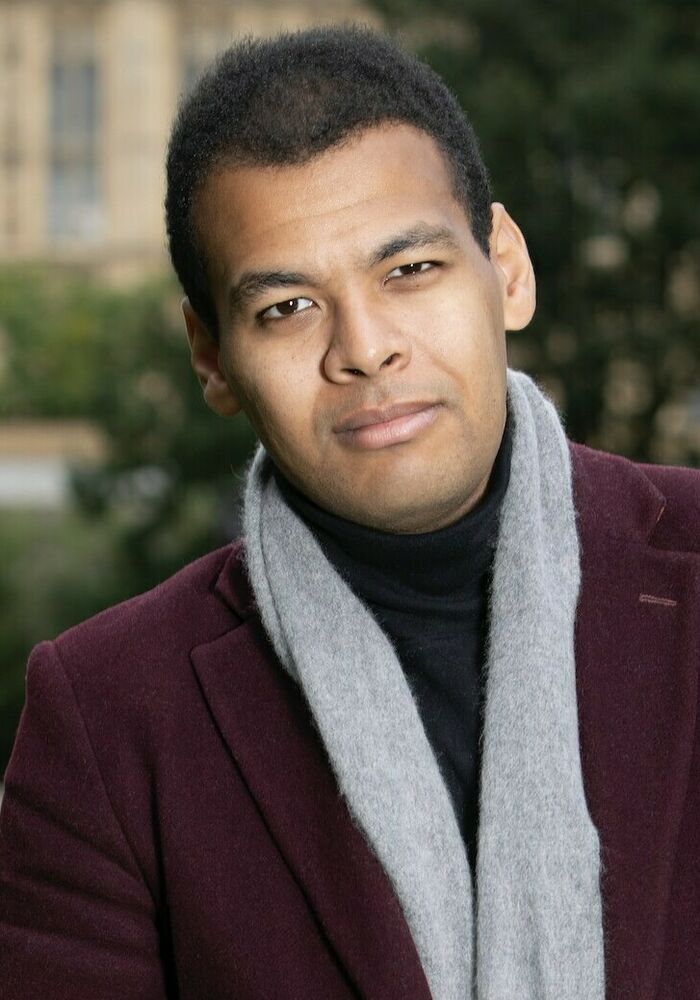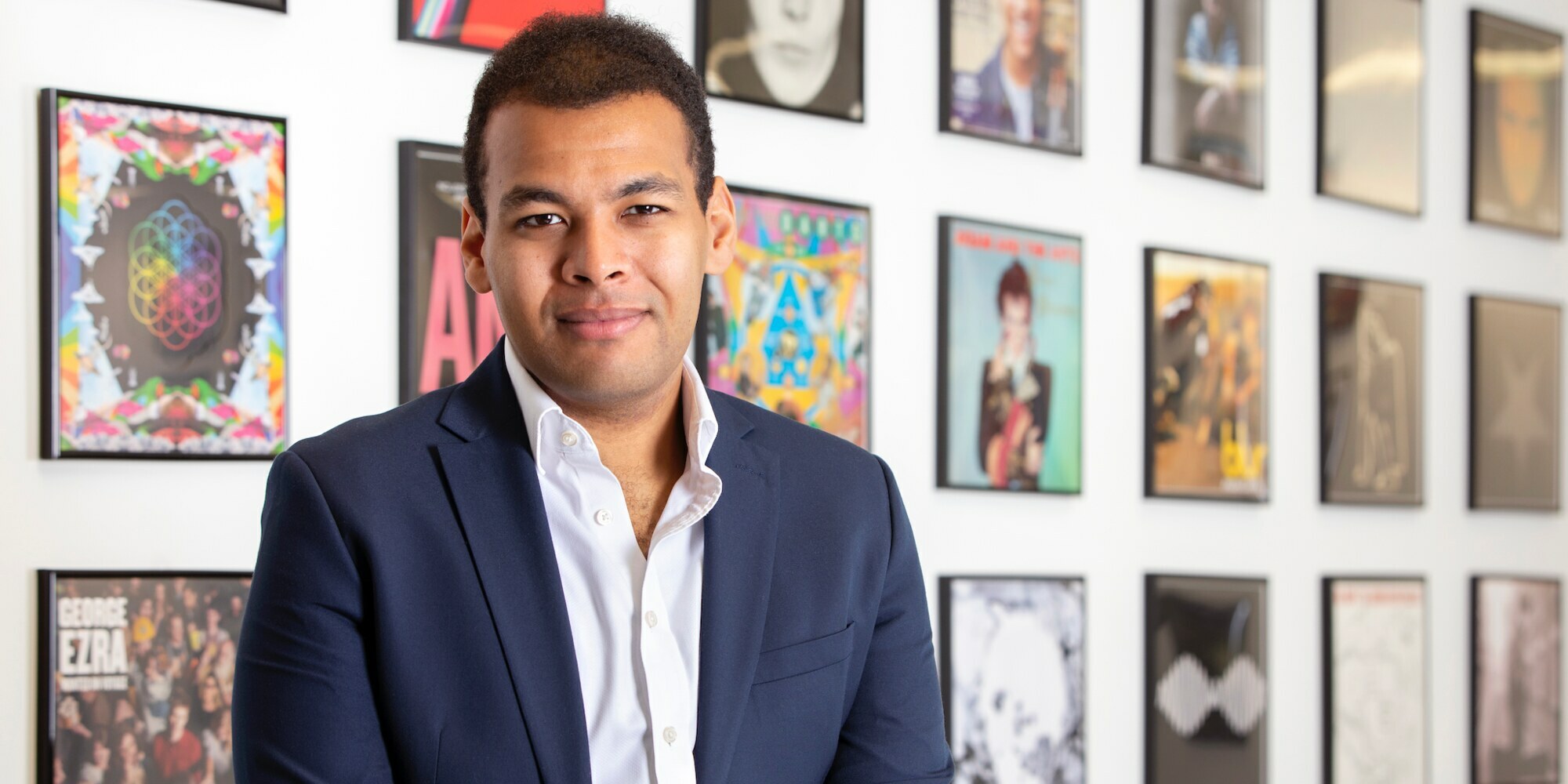UK Music CEO Jamie Njoku-Goodwin speaks to Headliner about the biggest challenges facing the music industry, from the impact of AI and Brexit to the difficulties facing the grassroots music sector, Eurovision, and why we ‘may have lost the next Ed Sheeran’.
Days after giving evidence to MPs on the impact of AI on the music industry, Headliner sat down with Njoku-Goodwin for an in-depth chat on the most disruptive technological breakthrough since the dawn of the internet. The conversation around the implications of generative AI on the music industry has been building for years, but in recent months has become its biggest talking point. Questions over how such technology can fall in line with existing copyright and IP framework are among the most pressing for the industry at present, with creators deeply concerned about the huge risks facing their livelihood should AI be able to create ‘new’ works in the style of an artist without having to pay them.
Njoku-Goodwin also opens up on the continued challenges posed by Brexit. Seven years since the referendum result, the implications of the UK’s departure from the EU are still being acutely felt, in some cases forcing artists to leave the music industry altogether.
Elsewhere, he details UK Music’s role in helping the grassroots venues sector survive what is predicted to be its most challenging year to date, the devastating effects of small venue closures on the next generation of new talent, and how the political upheaval of the past two years has impacted the music industry…
Last week you were giving evidence to MPs on the implications of AI on the music industry. What were the key messages you wanted to get across?
It was really important that we were there to give evidence. Lots of the stuff that’s been happening with AI in recent weeks and months is half exciting and half terrifying. There are huge opportunities but also huge risks and challenges, and this applies across society, from health care to transport and public data, across society. So, it was fantastic to be able to have this conversation with MPs, give evidence, and put a case across about why we should seize the opportunities of AI and make the most of this technology, but in a way that protects the music industry. There are all sorts of growth and job opportunities and a lot of the proposals we’ve seen from government in recent weeks and months would be catastrophic for the industry, so it was good to put our case forward on how the AI and music and creative industries can grow in tandem, supporting one another.
What are the most concerning aspects of AI for the music industry?
Fundamentally it’s about how AI interacts with the current copyright and IP framework we have. So, one of the biggest causes for concern we’ve had in recent months was around copyright exemption, which means that copyright and IP laws wouldn’t apply for the training of AI. We dubbed that music laundering at the time as it would have meant a situation where you would have been able to take works from a songwriter, feed them into an AI, have an AI generate ‘brand new’ version of the songs and essentially not have to pay or respect any copyright or royalty for the original composer. Now that would be awful not just for those composers but also for the industry as a whole. The copyright and IP framework we have in this country has been one of the reasons for this industry’s success, so if those rules and regulations were watered down it would have been catastrophic for the industry. So, trying to ensure there will be no copyright exceptions is one of the key things we want to see.
And there are a number of broader questions. Around the world we are seeing countries working out how they regulate AI; how they make sure you can have ethical, responsible AI, and we are wanting to do the same. So, questions like, how do you know what an AI has been trained on? If you have an AI generated piece of music how do you know whether or now it has infringed copyright? How do you know whether or not it has taken someone else’s work? One of the things you’d need on that is a database or record of what an AI has been trained on. That’s what other countries have been looking at and that’s what the UK should be doing too. And even more fundamental than that, not just what an AI generated piece of music has been trained on, but what actually is an AI generated piece of work? It’s totally conceivable that there are AI generated piece of music out there and no one knows that they are AI generated.
More broadly, we need to figure out what the licensing framework looks like. We are having lots of conversations in the music industry about what we need to be doing to support the AI sector, making sure that this technology can grow responsibly, so we need a proper licensing framework where if an AI company wants to use the work of a songwriter to train AI there is a way for them to do so if the songwriter gives them permission.
But this isn’t a final established technology. People like to act as thought where we are at with AI is where we are going to be, but it’s a nascent technology. It’s developing incredibly quickly, so as an industry we need to be keeping up with those developments and making sure we can be utilising this technology. There is lots to be excited about but it’s vital we get the regulatory frameworks right.
Is AI an even bigger disruptor for the music industry than the internet?
Yes. Without a doubt. The capacity for disruption comes at scale. The internet holds a lot of lessons for us. Right now, policy makers are legislating on online safety, they spend a whole lot of time and resource trying to make sure they legislate correctly on how people can use the internet safely. You could argue that that’s being done now because policy makers didn’t get it right decades ago, so there is a real argument that policy makers should be thinking not about the frameworks for years and decades to come.
There are also questions for us as an industry. It wasn’t just policy makers that should have been doing more with the advent of the internet, you could argue the industry should have been as well. And the industry has learned from this. They are not seeing AI as this thing that is completely awful and needs to be stopped in its tracks, they are recognising that it’s going to be massively transformational. It’s going to transform how we create and how we consume, so the point is not to bury your head in the sand and say I don’t want this to happen, you have to mitigate the risks and take advantage of the opportunity




